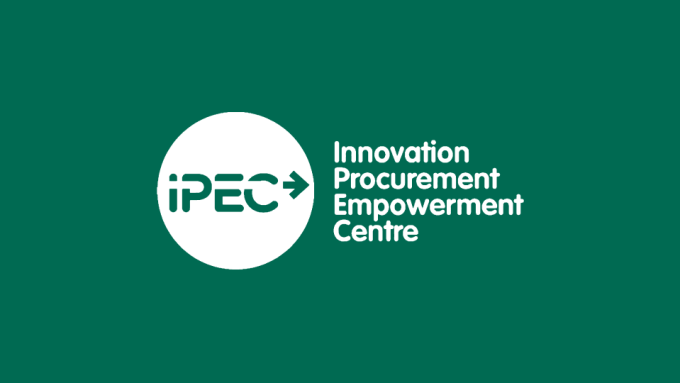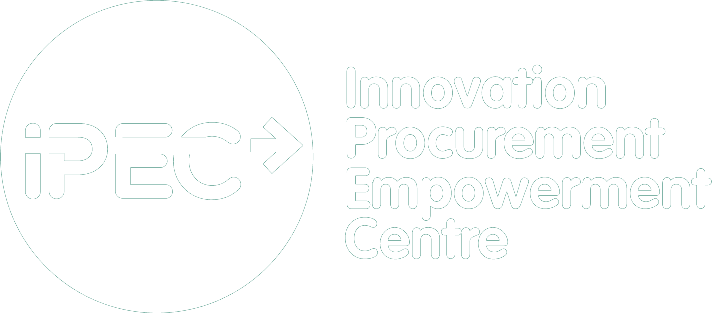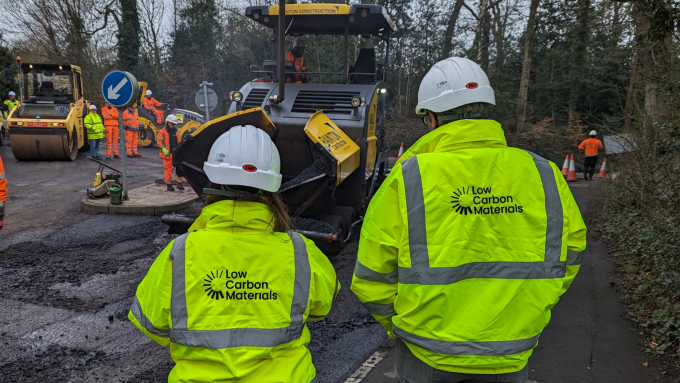
IPEC’s response to Public Procurement: Growing British industry, jobs and skills - consultation

The Innovation Procurement Empowerment Centre (IPEC), an initiative of Connected Places Catapult. We help councils and local authorities use procurement to unlock better, faster, greener and more cost-effective outcomes. We provide practical support, expert guidance and shared learning to overcome procurement barriers and bring innovation into the public sector.
We recently responded to the Government’s consultation on further reforms to public procurement.
While the Procurement Act came into law last year, this consultation focussed on some specific areas where public procurement could further progress Government priorities, such as, it looked at some specific areas to ask if more could be done to use public procurement to push progress on Government priorities: developing supply chains, opening up new opportunities for local small businesses and social enterprises, creating good local jobs, and delivering better value for taxpayers.
Our work can support these public policy aims, and we are pleased to offer our insights. With expertise in procurement research, we can help government shape goals, set meaningful measures, and improve the quality of data on public procurement. Strengthening data and evidence in this way can drive better policy decisions, enhance transparency, and deliver improved outcomes across the public sector.
We are calling for
- Better data and reporting
We support the introduction of mandatory SME and VCSE spend targets with annual reporting, alongside the expansion of Section 70 to cover all payments under public contracts. We believe that better data is critical for effective decision-making and accountability, and that reporting should go further by capturing spend on innovative products and services. This would bring greater transparency to procurement and strengthen its role in driving growth and innovation. - Role for IPEC in shaping reforms
As the UK’s competency centre for innovation in public procurement, IPEC has the expertise to contribute to the design of reporting requirements, social value criteria and KPIs. By drawing on our research and partnerships, we can help ensure that new reporting obligations are practical, proportionate and deliver useful insights for both authorities and suppliers. - Stronger payment practices
IPEC supports measures that require suppliers bidding for major contracts to demonstrate prompt payment to their supply chains. Late payment disproportionately affects smaller suppliers, stifling innovation and growth. A more robust approach to payment practices will not only reduce risk for SMEs and VCSEs but also help create a healthier, more innovative supply base. - Recognition of innovation as social value
We believe innovation should be explicitly recognised within social value criteria, KPIs and metrics. Innovation delivers value not just through improved services but also by creating jobs, building skills, supporting local growth and strengthening responses to climate and social challenges. Recognising innovation as social value will help ensure procurement outcomes are more ambitious and forward-looking. - Transparency and accountability
IPEC supports the introduction of a public interest test before contracting out major services, with results published to provide transparency. This will help ensure that decisions on whether to deliver services in-house or externally are evidence-based, accountable and in the best interests of citizens.
How we are helping
IPEC draws on excellent experience and research expertise through our partnership with teams at the Universities of Birmingham and Manchester, who are ideally placed to contribute to setting these targets and making reporting as easy as is feasible.
An example of this in practice is the IPEC Cohort two with Westminster Council. IPEC supported Westminster City Council in designing and running an innovation procurement pilot to reduce PM2.5 emissions from commercial cooking in local restaurants. The pilot offers financial support, invites solution-providers to test new air purification and monitoring technologies in real kitchens, and aims to generate data about how cooking emissions behave, what interventions work, and how these could scale. This project demonstrates our ability to help authorities try new approaches, measure outcomes, and iterate toward cleaner, healthier service delivery. But it goes further than just commercial cooking and using this research IPEC is now exploring how this learning can be applied to other environments.
We also agree that expanding the reporting requirements under section 70 of the Act to all payments made under public contracts would help to capture a more complete view of SME and VCSE spend and make it easier to report against spend targets. This could be particularly impactful at local levels.
We also agree with requiring contracting authorities to exclude suppliers from bidding on major contracts (+£5m per annum) if they cannot demonstrate prompt payment of invoices to their supply chains (within an average of 60 days) . This requirement would help reduce late payment. The measure would improve procurement practices more broadly by increasing support to smaller companies in supply chains. If we want to stimulate innovation from diverse suppliers, the need for prime suppliers to be responsible in how they work with their sub-contractors is absolutely critical.
In the rest of our responses we have emphasised that more attention needs to be paid to innovation. Innovation creates many types of social value. This can be place-based, as skills development, job creation, local growth and innovation networks, and it can have wider social value impacts, for instance in supporting local communities and developing better responses to climate challenges.
While the focus on jobs, opportunities and skills is important, there could be clearer recognition of the role of innovation. By delivering more innovative solutions, suppliers not only deliver better outcomes for a contract but and also nurture a wider innovation ecosystem which in itself has additional social value.
The proposed list of social value criteria and metrics should include supporting innovation. And we’d like to help with that!
IPEC also provides practical guidance and toolkits designed to help public sector organisations adopt more innovative procurement practices. Resources such as, The art of the possible in public sector procurement, and a practical guide to pre-market engagement show how early engagement with suppliers can improve outcomes and unlock new solutions.

Discover how IPEC can help you unlock innovation in public sector procurement by reaching out to our team at ipec@cp.catapult.org.uk
You can also follow us on LinkedIn





